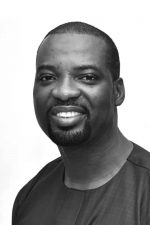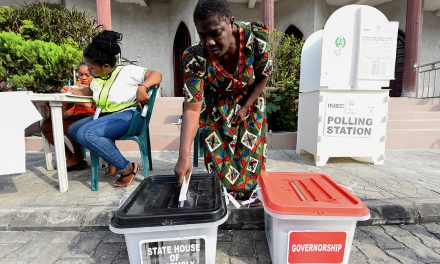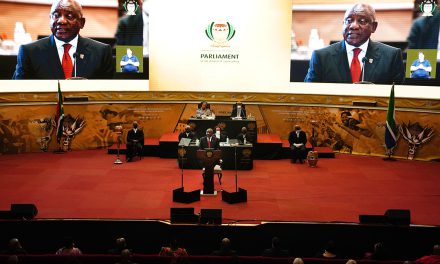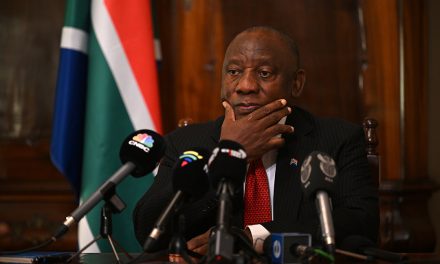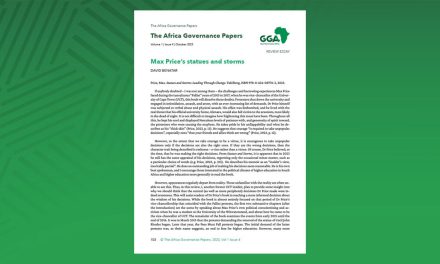Nigeria’s external partners in democracy promotion, including the European Union (EU), the US and the UK, need a more nuanced reading of developments in the country’s upcoming 25 February polls.
Foreign observers, and especially enthusiasts of Peter Obi of the Labour Party, require a better understanding of at least four dynamics. They are factors that stand in the way of his presidential ambition. Without digesting these and better, recalibrating, external observers may be wrongfooted by the election results.
As things stand, this year’s election contrasts with the usual two-party-dominated race, and is even less predictable in its outcome.
The injection of a competitive third-party candidate complicates the normal permutations. Obi is running strongly in the south and the middle of Nigeria, but important voting blocs in the populous northwest and northeast remain out of his reach.
The competitive race is therefore less suggestive of Obi’s victory, and more a pointer to his possible role as a kingmaker in a run-off presidential election. His legacy this year is unlikely that of a victorious insurgent, but rather one of ground-breaking audacity in taking Nigeria’s presidential poll to an unprecedented second round.
By not articulating this prospect, key international observers may be missing the wood for the trees.
Nigeria is different
Last May, October and December, I undertook trips on behalf of Good Governance Africa (GGA) to Washington DC, some western European capitals and the EU’s seat in Brussels. I was confronted at partner meetings with the same, searching questions. Are we about to see an insurgent-type candidate emerge as Nigeria’s president? Could he go all the way to win? In fact, what are his true prospects?
Starting in 2022, the excitement climbed to fever pitch as Obi weaned significant support in pockets of Nigeria’s south away from the country’s two leading parties. These are the ruling All Progressives Congress (APC), represented by Bola Tinubu, and the People’s Democratic Party (PDP), with Atiku Abubakar as its candidate. Still, factors including a smaller number of voters and the likely depressed turnout in Obi’s key southern bastion count against his prospects in this nationwide election.
Nigeria’s context is both unique and tough for a start-up-style presidential aspirant. The country’s ethnic, religious and regional complexities make elections in Africa’s most populous democracy unpredictable. Some of the optimism about Obi is understandably informed by direct extrapolations of recent African elections.
Examples often cited include the stunning wins recorded recently by insurgent candidates, including Kenyan President William Ruto, Zambian President Hakainde Hichilema, and Malawian President Lazarus Chakwera. It is hoped that Obi as a third-party candidate will similarly offer a viable alternative to Nigeria. However, this year’s electoral arithmetic does not exactly add up to Obi’s coronation.
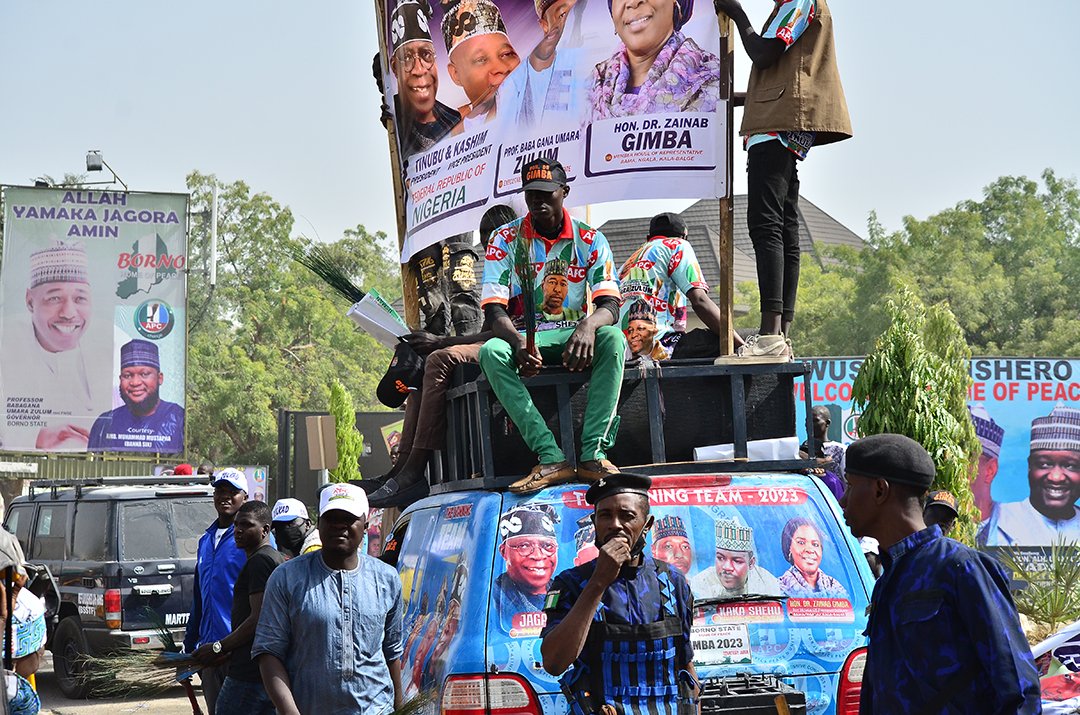
Supporters sit on a vehicle during an All progressives Congress (APC) rally in Maiduguri on 18 February 2023, ahead of the Nigerian presidential elections scheduled for 25 February 2023. Photo by Audu MARTE/AFP
Tough calculus
So, what are the four hurdles that line his path to the presidency? First, he must win the first round by himself, getting the most votes, which is unlikely. Second, if he does not win outright, Obi must split enough votes in the first round to prevent either of his two main competitors from receiving 50% + 1 of all votes cast.
This guarantees that no clear winner could be declared in the first round, which is possible in this election. In addition to the simple majority, a candidate also needs to meet the onerous constitutional requirement of national spread to be elected. This requires winning at least 25% of votes in two-thirds of Nigeria’s 36 states (i.e 24 states) and the Federal Capital Territory.
That is onerous for Obi who is not expected to make headways to reach the requisite share of votes in Nigeria’s northwest and northeast. If indeed the election goes to a second round, and with Obi still in the mix, his chances of a second-round win increase, in statistical terms at least.
Third, he also needs large chunks of voting constituencies in northern Nigeria to switch support to him in a second round. Whilst he remains a refreshingly competitive candidate, his best winning prospects are in Nigeria’s south-eastern states, the south-south and a few middle belt states. Broadening his appeal to Nigeria’s core north is the pending homework that his Labour Party should focus on between 2023 and the 2027 election to increase his chances of being elected Nigeria’s president. It is also a key lesson for Obi enthusiasts abroad.
Grassroots expansion
In practical terms, a national structure is a sine qua non to run a successful presidential campaign in Nigeria. This takes on even more importance in a prospective second round. Success in this will hinge on the ability of candidates in a run-off to build coalitions, bargain horses and build bridges, especially with the third placing (and potentially a fourth-place) candidate from the first round. Therein lies the crucial fourth test for Obi.
His Labour Party has very limited organisational depth across Nigeria. It does not boast a sitting governor, national-level lawmaker, and similar elective offices like its rival parties. All are essential levers and structures needed to turn out the vote and secure it in Nigeria’s elections, beyond just inspired activism.
With his core support largely concentrated in the south, Obi will in practice require more than a miracle of northern voting sentiments swinging in his favour in a second round. He will essentially need the PDP or APC’s better-established structure (both with the national spread of elected representatives and politically influential players) to back him. Up against two of Nigeria’s arguably best-rehearsed and best-resourced presidential contestants ever, his success in this effort is far from guaranteed.
Kingmaker in the making?
Obi’s first-round win is practically outside the realm of possibility. In a second round, it will require a similarly stunning outcome for him to emerge winner against informed projections. However, none of this is to discard Obi’s future chances at the presidency. Read correctly, events point to his rising stock as one of the likely kingmakers in a possible second-round scenario this year. Especially if he emerges from this first round with an impressive third-position showing, which should further bolster his winning prospects in future elections.
What all the foregoing subtly highlight is a wholly under-appreciated factor within the Obi campaign and those of his competitors. Success at alliance broadening is virtually guaranteed to determine the ultimate winner of a second round if this election goes to the wire. Victory in this conjecture requires less of the sharply drawn adversarial posturing and vilification that has characterised the campaigns so far. More gritty alliance-forging and outreach in the election homestretch will be astute. It is a reading that external observers also should heed if they are not to be completely wrongfooted.
Obi, Tinubu and Atiku all urgently ought to prioritise effort on co-opting competition, better to prepare for a likely inconclusive first round. That might be the most prudent path to achieve a truly inclusive north-south alliance which may prove crucial in an unprecedented second round. No less might be needed to succeed Buhari in Aso Rock in this year’s ground-breaking election.
You can find the PDF version of this article here and the MS Word version here.
Oladiran (Ola) Bello obtained both his MPhil and PhD degrees in International Relations from the University of Cambridge and also holds a First Class BSc degree from the Obafemi Awolowo University, Ile-Ife. He has worked for organisations including the United Nations (New York) and Management Systems International (Washington DC), Merchant International Group (London) and Arthur Andersen (later KPMG). Dr Ola Bello has more than 10 years of experience in research and policy advisory, including on governance and extractive sector reform; sustainable development; and international development cooperation (including in EU-Africa relations). He spent three years with FRIDE (Spain) managing a donor-funded programme on the EU’s role in managing fragility and resource governance in select African countries. In 2012-2015, he was Head, Governance of Africa’s Resource Programme (GARP) at the South African Institute of International Affairs (SAIIA) and also functioned as head of SAIIA’s Cape Town office. Ola is spearheading GGA's technical support to Nigerian reform, including delivering ethics training for senior Nigerian judicial officers and change-makers (2017-2019). He's also working to expand GGA's role as in-country resource centre for multilateral consultative missions to Nigeria's ministries and parastatals. These missions include the UNECA/AU mineral sector governance team.

